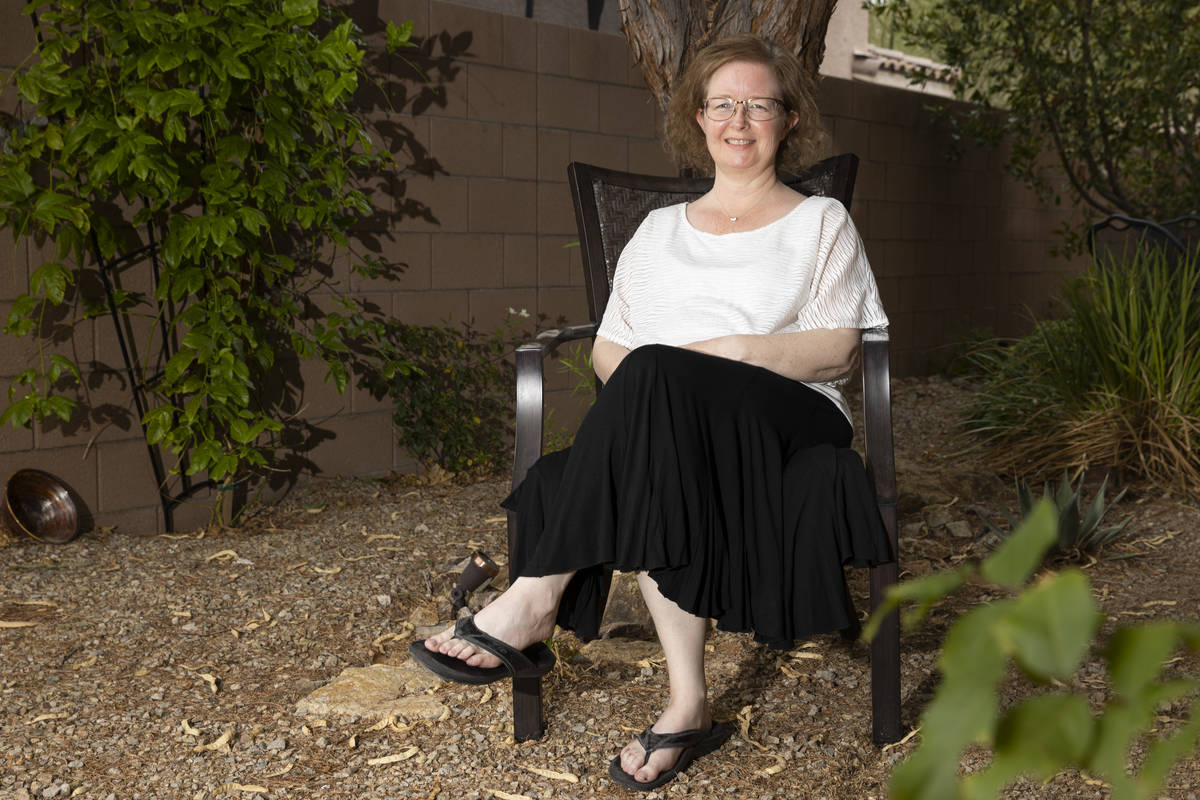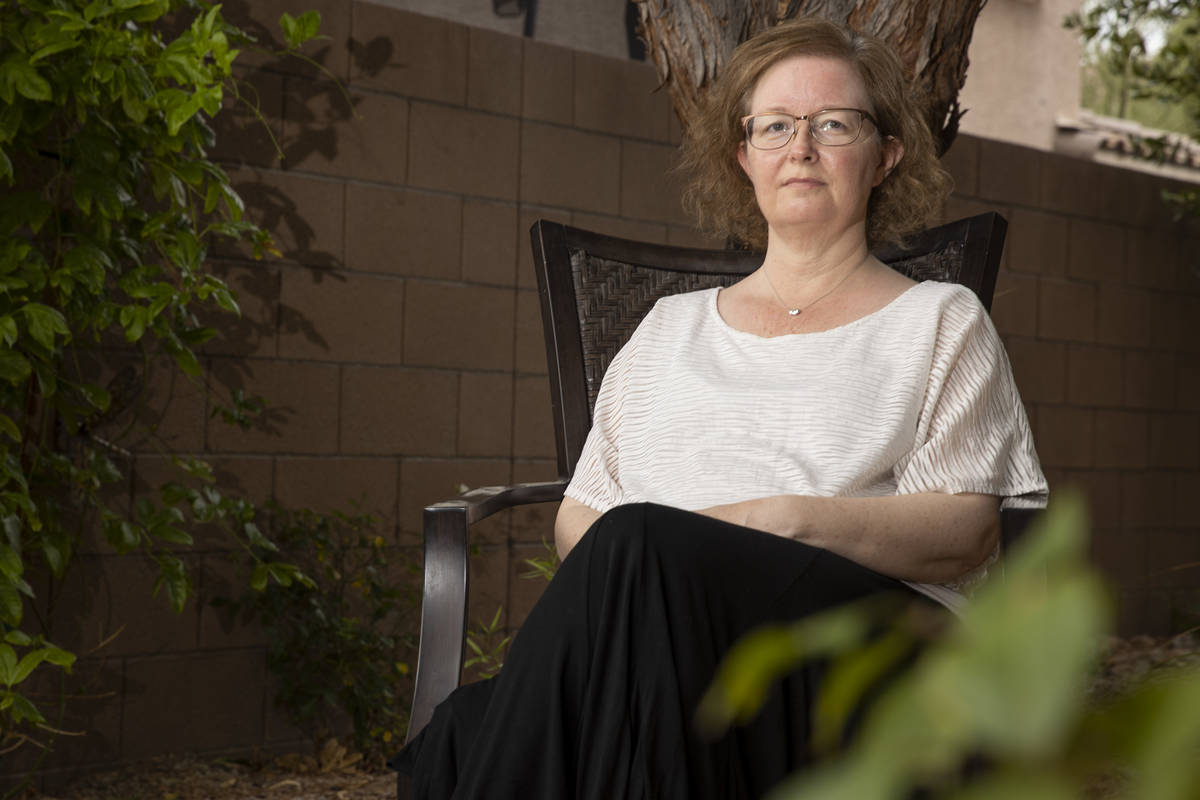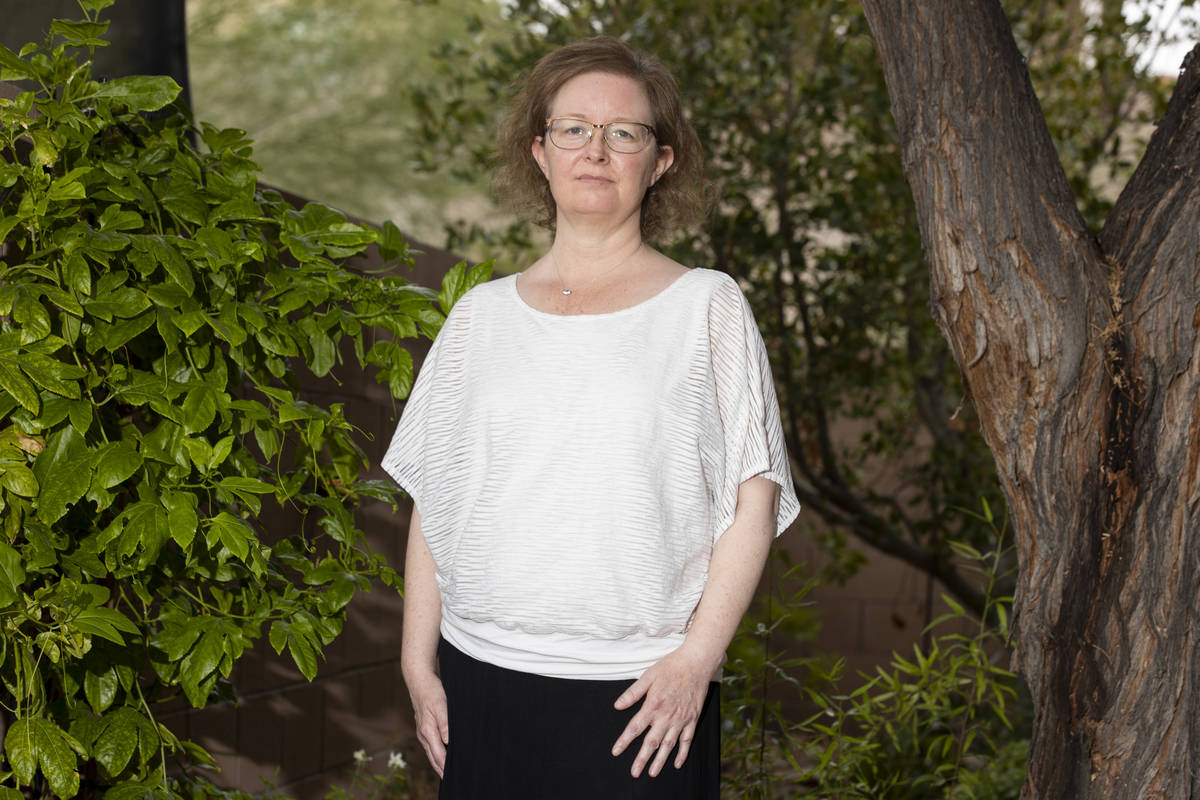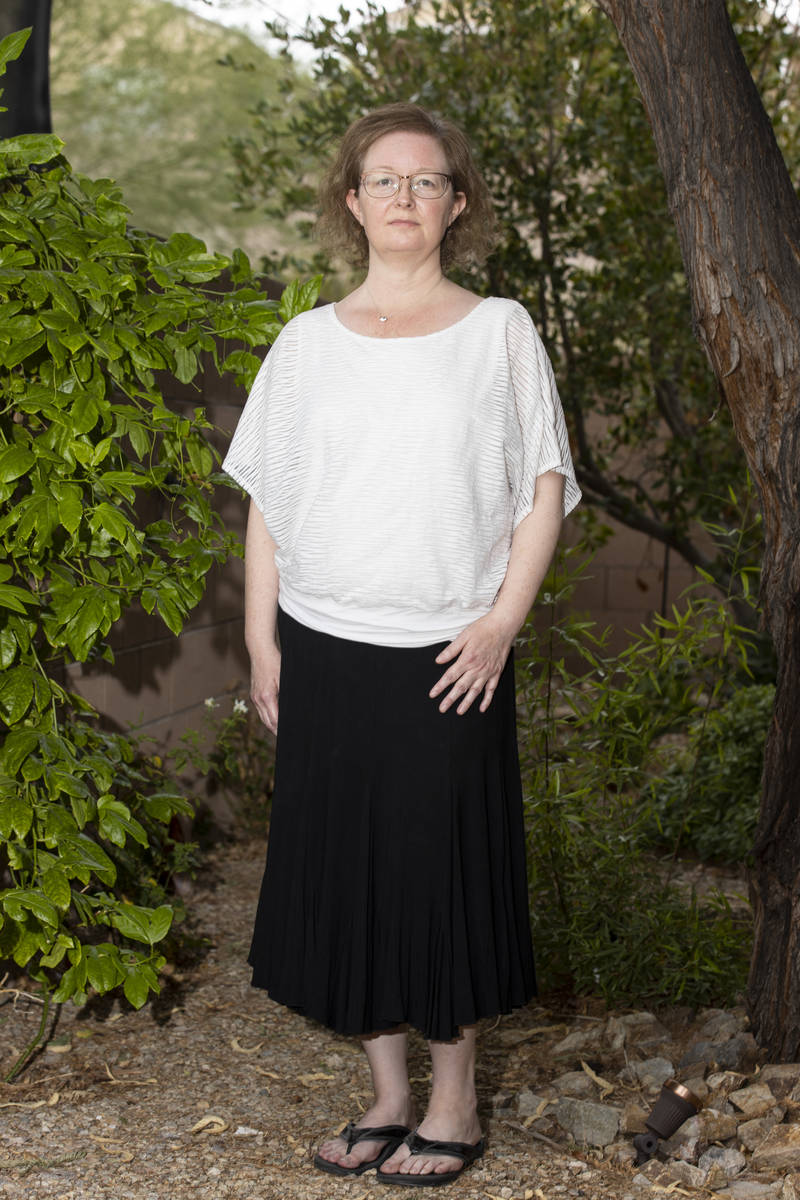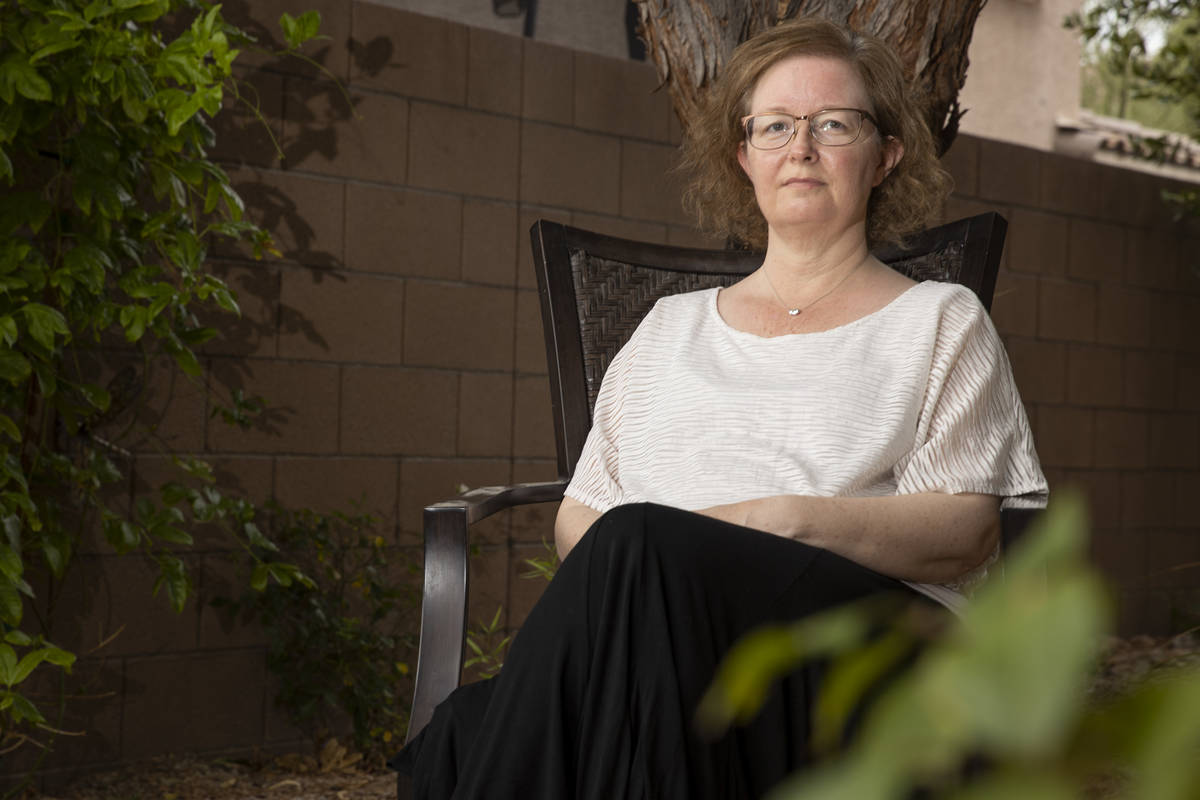Henderson woman championed COVID booster shots for immuno-compromised
For the past year and a half, Jullie Hoggan has lived in a bubble.
The Henderson resident has spent months at a time living apart from her husband and daughter after undergoing a kidney transplant in February of last year. She was released from the hospital the following month, just as the country was locking down to stop the spread of COVID-19, and was prescribed medications that suppress her immune system and keep her body from rejecting the transplanted kidney.
For Hoggan, and others like her with weakened immune systems, COVID-19 has posed extraordinary challenges.
The 49-year-old rarely leaves her house and left her job as a speech pathologist at a Las Vegas hospital for one that allows her to work from home to help people awaiting an organ transplant. With time on her hands, she joined a group advocating for approval of a third shot for those with compromised immune systems.
She was thrilled to hear late Thursday that the Food and Drug Administration, followed on Friday by the Centers for Disease Control and Prevention, had approved a third shot of the Pfizer or Moderna vaccines for patients with severely or moderately compromised immune systems.
“There’s a huge chunk of people that will get antibodies and will be protected,” she said.
Hoggan is not one of them. She already took matters into her own hands and got a Johnson & Johnson shot on top of two doses of the Pfizer vaccine.
As a participant in a Johns Hopkins University study of transplant patients and vaccinations, she learned that her body has yet to produce any of the antibodies that help to fight off COVID-19.
Third shot works for some
Studies have shown that with some immuno-compromised individuals, a third shot can rev up the immune system after the first two shots triggered an inadequate response. Hoggan was not so fortunate.
Still, Hoggan is part of a group that has been advocating not only for the third shot but for transplant centers and doctors to provide timely information on COVID-19 developments to patients.
Before speaking to a reporter on Friday, she was on a call with this group, which includes study participants, and “everybody was freaking out and crying and getting super-excited,” she said.
The CDC has recommended the third shot of mRNA vaccine for people with a range of conditions, including recipients of organ or stem cell transplants and those with advanced or untreated HIV infections, who are receiving cancer treatment or taking medications that weaken the immune system.
Federal public health officials also recommend that immuno-compromised individuals get a third shot of the same mRNA vaccine they previously received.
The additional dose may be given 28 days or more after the second dose of mRNA vaccine, said Shannon Litz, a representative of the Nevada Department of Health and Human Services.
An advisory panel to the CDC recommends that patients talk to their health care provider to determine if and when they should receive a third dose, said Stephanie Bethel with the Southern Nevada Health District.
Federal regulators imposed no requirement that individuals document their conditions to receive a third dose.
They cautioned that an additional shot has not been shown at this point to benefit those without a weakened immune response.
There is no federal guidance yet for people who have received the single-dose Johnson & Johnson vaccine.
‘If I’m out, I’m scared’
For those with compromised immune systems, the pandemic has been especially harrowing — even more so now with the more infectious delta variant.
For long stretches during the pandemic, Hoggan’s family, which includes a daughter in college, lived separately, with Hoggan living with her parents, or her husband bunking in a friend’s casita. The family reunited during periods when the pandemic seemed to be subsiding and they had gotten vaccinated and when her husband’s employer required masks.
When at home together, the family remains masked and socially distanced. Hoggan’s husband in the past few days moved out again after a person with whom he had been in a meeting tested positive for COVID-19.
“I’m a little bit used to it now,” she said about this new normal. She even feels lucky that she has found a job she loves that she can do from home. And she talks with friends and has book club on Zoom.
“But you know, it’s still weird. I don’t see anyone but my husband, ever. … And it’s weird to feel like everyone’s saying, ‘Don’t be scared’ … and I’m, like, always scared. … If I’m out, I’m scared.”
She also has found purpose in advocating for transplant patients through letter-writing to politicians. She urges transplant patients and others with compromised immune systems to talk to their doctors about whether they might need a third dose of vaccine.
There is a readily available test that can measure levels of antibodies, she notes.
“I just want people to know that they need to check in and keep a mask on and be careful until they know what their risk is,” she said.
Contact Mary Hynes at mhynes@reviewjournal.com or 702-383-0336. Follow @MaryHynes1 on Twitter.



